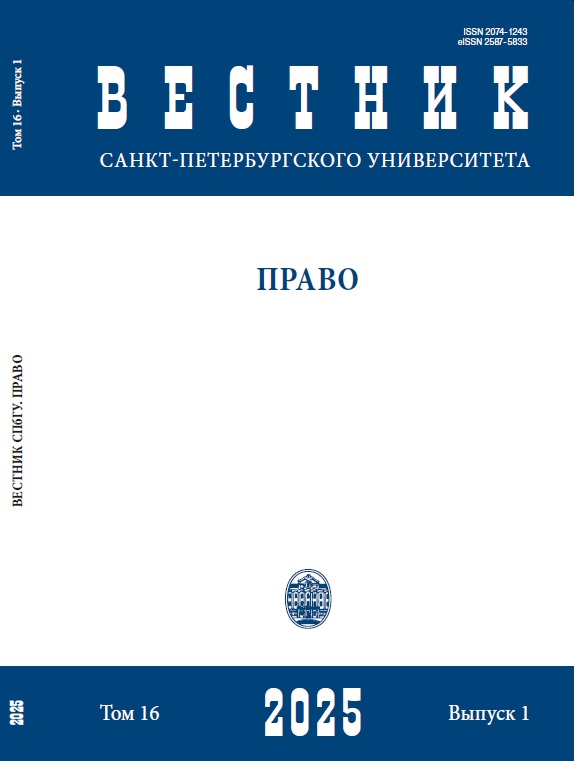The theory of formal truth in arbitration procedural law
DOI:
https://doi.org/10.21638/spbu14.2025.103Abstract
The study of theories of truth from a methodological point of view is useful for both natural sciences and humanities, including law. This article formulates the theory of formal truth
based on the current judicial practice in the field of arbitration proceedings. The main characteristics
and content of the proposed theory of formal truth are investigated. The legal assessment of the application of this theory in the arbitration process is given, the methods and techniques used by the court to establish the circumstances of the case and the motives for the adoption of relevant judicial acts. The approaches to the assessment of the subject of the claim, the choice of a way to protect the violated right and the active role of the court. The general and special provisions of the law on the distribution of the burden of proof are
disclosed. The article defines the boundary between the legally permissible and the possible
practically active role of the court. At the same time, the criteria for the permissible role of the court may be: the framework of discretionary functions, in which the court has the right to independently determine the way to verify the oral and written arguments of the parties; by the established judicial practice in the relevant categories of cases; the discretion of the judge, taking into account the circumstances of a particular dispute and the need to fulfill the tasks of the proceedings. Highlights the importance of timely disclosure of relevant evidence and petitions, including falsification of evidence. It is concluded that the solution of this issue is directly in the procedural plane, but the legal consequences of such a statement affect the
substantive result. The influence of information technologies on the essential characteristics of the theory of formal truth in arbitration proceedings is analyzed.
Keywords:
theory of truth, theory of formal truth, procedural estoppel, abuse of law, disclosure of evidence, burden of proof, procedural risks, court decision, active role of the court, falsification of evidence
Downloads
References
Downloads
Published
How to Cite
Issue
Section
License
Articles of "Vestnik of Saint Petersburg University. Law" are open access distributed under the terms of the License Agreement with Saint Petersburg State University, which permits to the authors unrestricted distribution and self-archiving free of charge.






